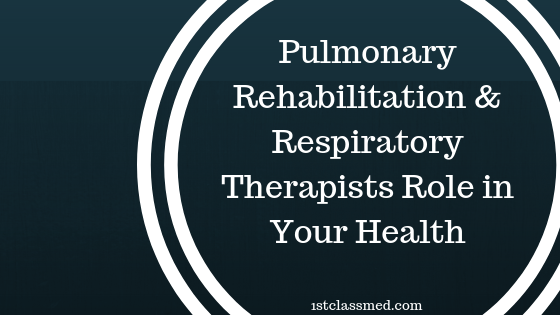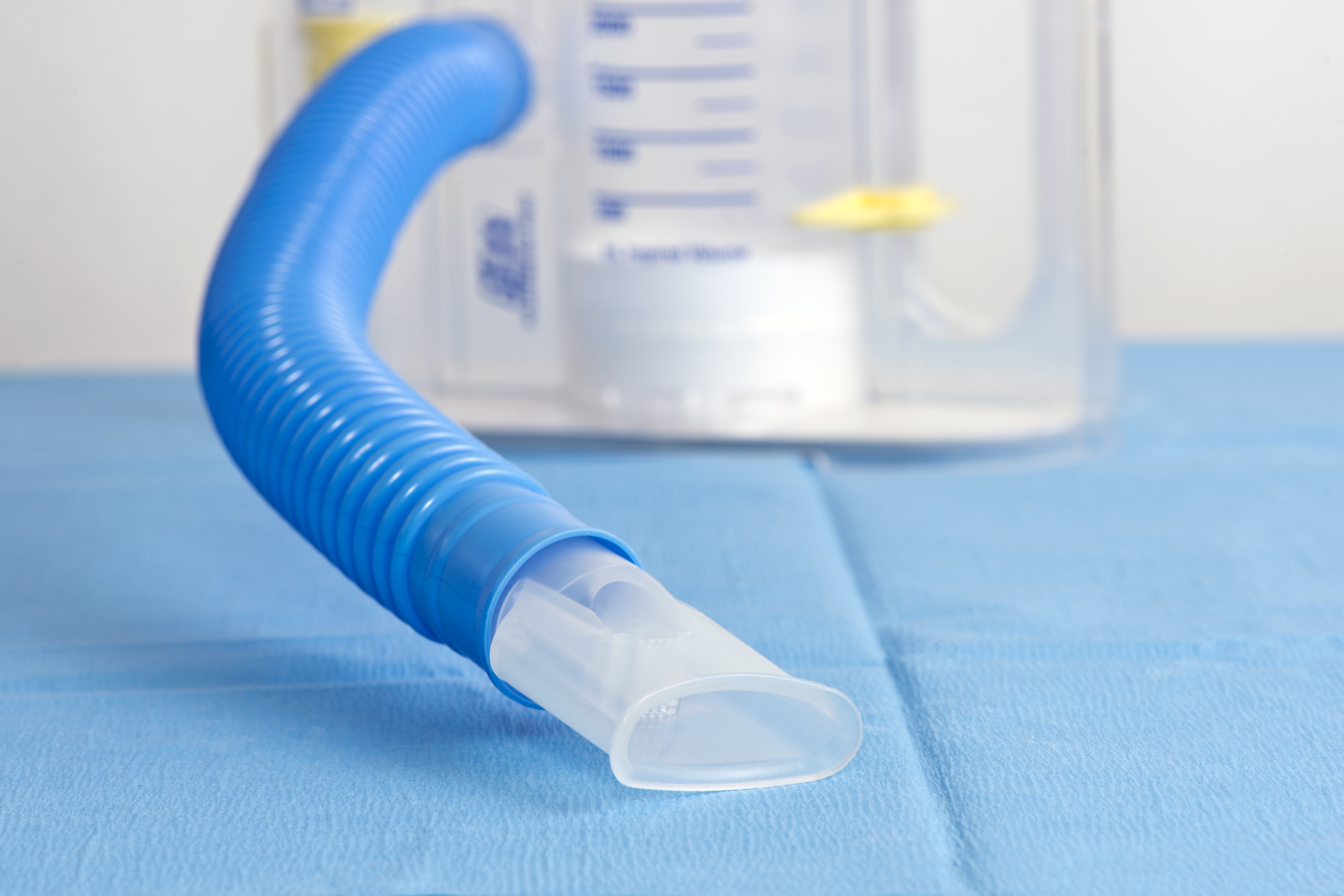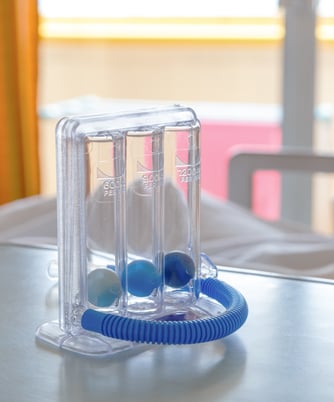
Pulmonary rehabilitation is commonly used for those with poor lung function, either from a medical condition or after a major surgery.
It can help lung diseases from progressing and can even improve lung function depending on the severity and cause.
Not only do respiratory therapists help you learn new exercises, they educate you about your disease or condition and what you can do to improve.
Pulmonary Rehabilitation:
The main goals of pulmonary rehabilitation is to improve lung function, reduce symptoms and improve quality of life.
When your doctor prescribed pulmonary rehabilitation, either before/after surgery or simply because of poor lung function, you may be confused as to what it is.
Pulmonary rehabilitation is used to help with your physical condition, making it easier for you to stay healthy and active even after you are done.
When you first arrive, your respiratory therapist will evaluate your current health, including heart rate, blood pressure and oxygen level.
This is used to show the starting point of your therapy and will allow the therapist and your doctor to make sure there is some improvement during the rehabilitation.
After getting your starting measurements, your therapist will start incorporating exercises and breathing techniques.
Depending on your condition, your respiratory therapist will design a plan specific to you, with the goal to improve endurance and muscle strength.
Over the course of the rehabilitation you will also learn about medications, nutrition, relaxation, oxygen, traveling, managing day to day activities, and staying healthy.
Medications are discussed as you most likely will be taking medication along with your rehab, so your therapist may be able to answer questions about the medications or why you are on them.
Pulmonary rehab can also be done in your home if there are no locations near you, or if you are unable to make it to the facility.
Your doctor will provide all information on pulmonary rehabilitation if he or she decides to put you into the program.
After a period of time you may know how to do the exercises at home, but it is important to speak with your doctor or respiratory therapist to make sure it is safe before you do them.
Often pulmonary rehabilitation facilities are located inside of a hospital or clinic but is an outpatient program and will not require you to stay.
The program is often once a week, but it is possible it will be more depending on the severity of your condition.
It often will last for a few months, but once done you will take the same tests and measurements as you did at the start of rehab.
The pulmonary rehabilitation program will not only help your breathing but help improve your overall life, by helping you change how you exercise, eat and live every day.

Completing Pulmonary Rehabilitation:
Sadly, those who need pulmonary rehabilitation the most are the ones least likely to complete the program.
Many reasons cited for why they ceased rehab was due to lack of motivation, transportation, their COPD exacerbations, work-related reasons and hospitalization.
It was found that higher hospital admissions occurred for those who failed to complete the program compared to those who did complete the program.
Nearly 50% of those with COPD, who were referred to a pulmonary rehabilitation program did not participate in the program.
It is very important to complete the program if it is recommended for you, as it can improve your health and overall well-being.
If you have successfully completed the program your respiratory therapist will most likely sit down with you at your last appointment and go over how you can continue at home.
They will provide you with a plan for you to continue your exercises at home and help you keep the work you put in throughout rehab.
If you feel you are struggling to follow the plan at home, contact the pulmonary rehabilitation clinic or your doctor and discuss what you can do to stick to it.
Respiratory Therapists:
Respiratory therapists are those who assess and treat patients with conditions of the cardiopulmonary system.
They are required to be certified in order to work and often need a an associated degree to even get into the field.
RTs are able to assess your current condition (asthma, COPD, lung trauma, etc) and determine the best exercises for you, they also will take measurements throughout the rehab to determine if there is improvement.
You may come into contact with different types of respiratory therapists, such as emergency respiratory therapists, adult respiratory therapists, pediatric respiratory therapists, and geriatric respiratory therapists.
Emergency respiratory therapists are often in a hospital and will be in the emergency room for those who had heart surgery or lung failure and will occasionally assist doctors during surgery.
Adult respiratory therapists are found in a hospital, outpatient, or home setting, they may help with maintenance of chronic diseases.
Pediatric respiratory therapists work with newborns and children, to help with breathing if they have any issues, such as a premature baby or asthma.

Geriatric respiratory therapists focus on those over 65 to strengthen the lungs and slow the progression of diseases (emphysema, chronic bronchitis), common in a hospital, outpatient facility or at your home.
Depending on where you are located (hospital, outpatient, home) and why you are there (serious surgery, disease, etc) will depend on what the RT will require of you.
For many, after a major surgery of the heart or lungs, the RT will come to your room and have you work on breathing exercises while you are stuck in the hospital.
If you are in an outpatient facility you will meet with a RT once a week (more if required by your doctor) to work on exercises to strengthen muscles, they will have a list of things you will do each week in hopes of improving your breathing.
Some RTs may give you homework to do when you go home, and work on exercises during the few days you are not at rehabilitation.
If they come to your home it will be very similar to outpatient care, as they will provide you with exercises and homework that you need to accomplish.
Conclusion:
It can be surprising to be told that you need to go to pulmonary rehabilitation, but it is important to follow your doctor’s guidelines.
Following through with pulmonary rehabilitation can help your overall well-being and can help you breathe easier.
If you do not follow through you may have a more unpleasant outcome, resulting in lower health and well-being.
Respiratory therapists will work closely with you no matter the environment, helping you perform exercises that are customized to you.
It can be a pain to have to attend pulmonary rehabilitation but it can allow you to do more after the program, as well as improve your overall health and well-being.



